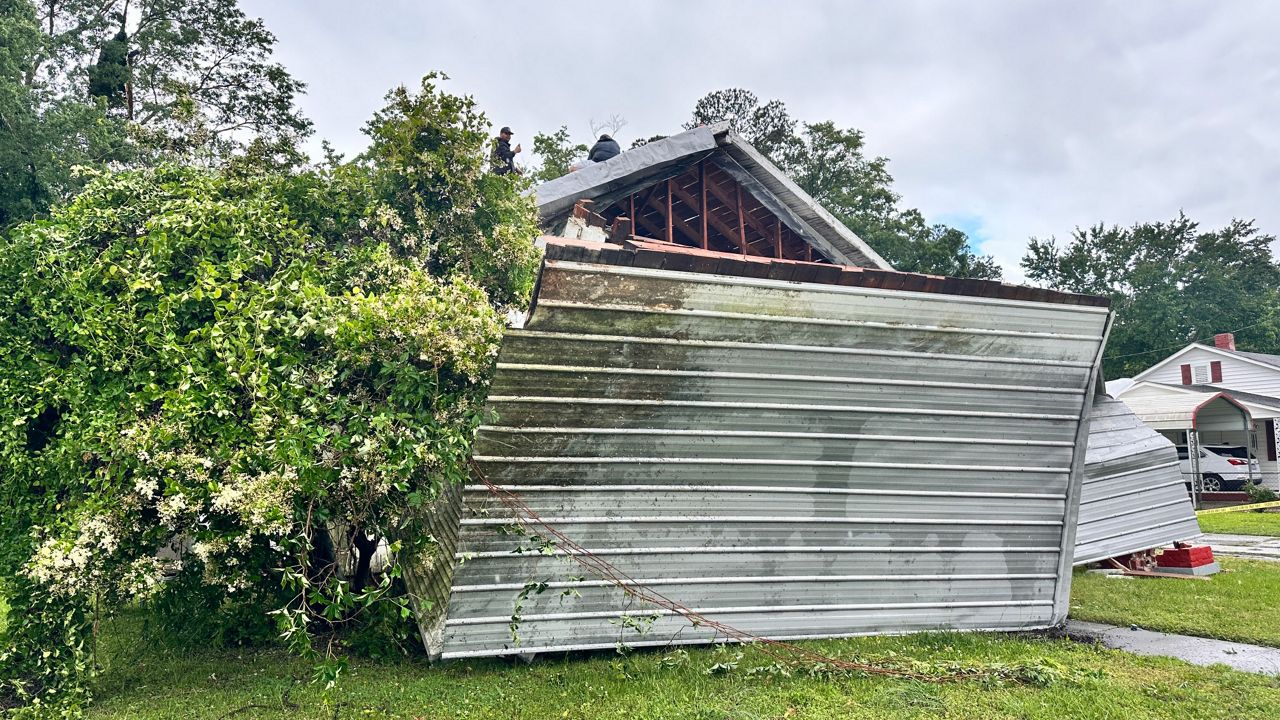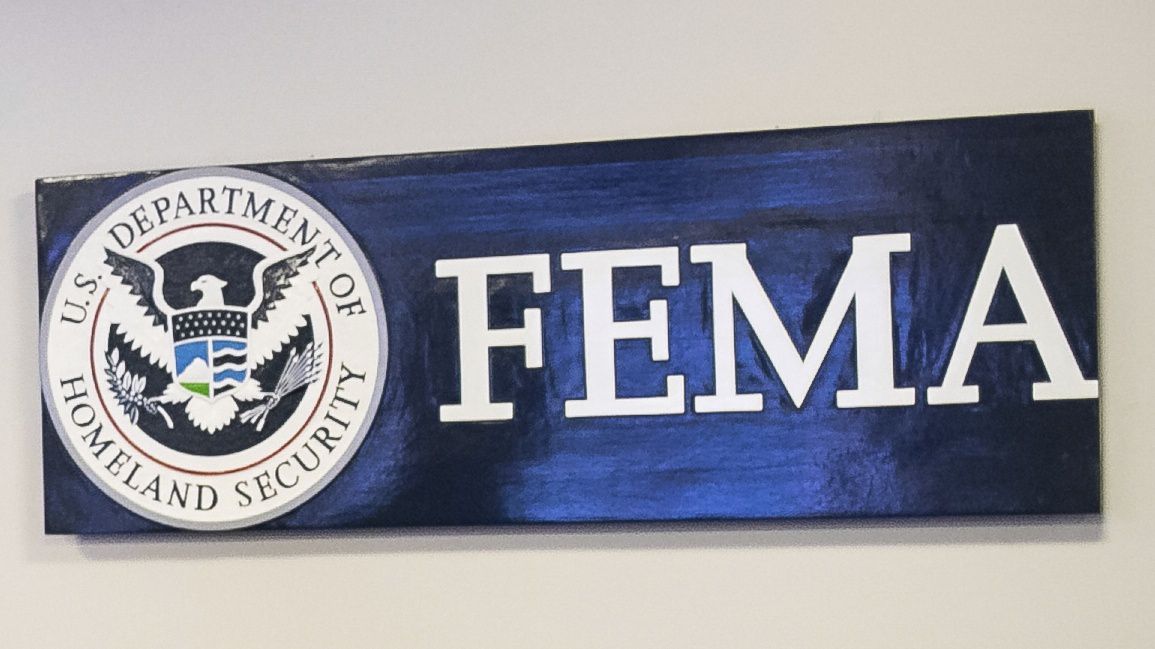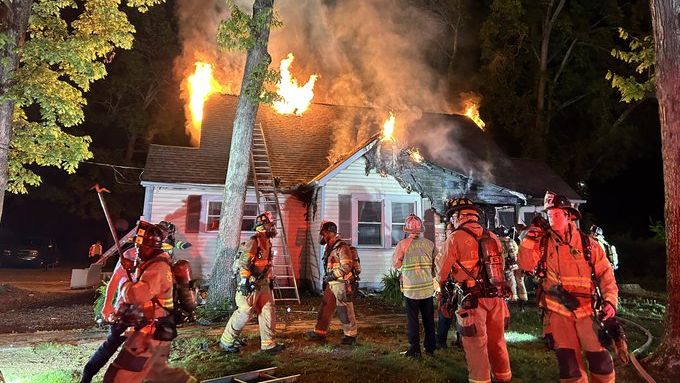MOORESVILLE, N.C. — A Mooresville reverend who brought the idea of filming a documentary highlighting the town’s Black history to the town feels officials did not include him in the storytelling process.
The Rev. Curtis Johnson remembers everything and everyone from his time as a young boy growing up in Mooresville.
What You Need To Know
- The Town of Mooresville, as it celebrates 150 years, will showcase a new documentary highlighting the town’s Black history called “Black Mooresville: The Untold Story”
- A Mooresville reverend who brought the idea of the documentary to the town feels he was not included in the storytelling process. The Rev. Curtis Johnson is speaking out about his experience
- Town officials have called the documentary a "very important local history project" but acknowledge that there was so much material that it had to be "streamlined" for a 60-minute show
He lived in what he said at the time was a Black community known as the West End.
“I knew pretty much where everybody lived,” he said.
He can still list all the names of families who lived in the community.
“It was just a thriving little community,” he said.
“You had businesses. We had the Dunbar school down there. We had churches,” he said.
He now is president of the South Iredell NAACP. For a long time, it’s been his mission to document the stories of the Black community in Mooresville, both good and bad. He wanted to document the truth.
His chance came as the town planned its 150th anniversary celebration. He asked, how was Black history being included?
“The librarian told me that Mooresville didn’t have any Black history, that they would start from 2022 with our history, and I said, ‘Oh no, no, we got history here in Mooresville,’” Johnson said.“The librarian told me that Mooresville didn’t have any Black history, that they would start from 2022 with our history, and I said, ‘Oh no, no, we got history here in Mooresville,’” Johnson said. So, he decided to go out and get it.
“So Rev. Gabriel [the Rev. Gavin Gabriel] and myself, we had already talked about doing, shooting a documentary but that just kind of speeded things up,” said Johnson.
Johnson first approached the Mooresville Public Library about the idea for a documentary last summer. The History Town Committee endorsed the idea, according to a town document.
The library through the town contracted with ICTV for that documentary, according to library director Marian Lytle, who said she sees the need to strengthen the town's Black history.
At first, Johnson said he was excited — but that quickly changed. He feels the town and library didn’t include him, and instead, pushed him out.
“They pushed us completely out of the way,” Johnson said. “To me, that is dangerous because you can’t tell… God gives a vision to those he wants to carry them out. Not somebody that just wants to reach in because this is why we are having the issues we’re having now, because they overstepped their bounds of what God wanted to do.”
“I started to seeing other thing start to happen,” Johnson added.
“First said they didn’t have no Black history and then when we got started with this, then started, interferences start to, started to see little things start to happen,” he said. “I felt like they was trying to insert something that they wanted in there and take out what we had worked hard to get. And I told them that I wasn’t going to stand by and see that happen because the NAACP doesn’t operate like that.”
The documentary, titled “Black Mooresville: The Untold Story,” will premiere Saturday, Feb. 11, at the Charles Mack Citizen Center in downtown Mooresville.
Town officials have called the documentary a "very important local history project" but acknowledge that there was so much material that it had to be "streamlined" for a 60-minute show.
Johnson says he’s not excited ahead of the premiere.
“And for it to end up the way it’s ended up, I am disappointed,” he said. “I am not as excited as I was.”
“They’re looking forward to seeing this,” Johnson said, referring to the community. “They’re not looking forward to seeing something that’s been watered down.”
Thirty people were interviewed for the documentary. At one point, Johnson says he found out there was a possibility that they couldn’t include everyone in the final cut.
“We told the people that they would be in the documentary, we told them that they may, not going to post everything that they say, but just clips and things of this nature, they would be in the documentary,” Johnson said. “Because of the way that they was trained years ago, they might just hold it in and it could cause them to perish, holding this in when they trusted us to tell them the truth.”
Johnson said he had been in contact with Eddie Dingler, Ward 1 commissioner for Mooresville, to air his concerns, to which he said Dingler immediately responded.
“The Black Mooresville documentary is a very important local history project that began with a history committee team passionate about our community. At the committee’s recommendation, ICTV was contracted by the Town to film, edit, and otherwise produce the documentary. Thirty individuals were interviewed by ICTV as part of the documentary and more than thirty hours of content was captured. Due to the abundance of material, it was necessary to streamline the content to create a cohesive 60-minute documentary,” Dingler said.
“The Town understands concerns that all voices will not be featured in the 60-minute documentary due to time restrictions," Dingler said.“The Town understands concerns that all voices will not be featured in the 60-minute documentary due to time restrictions," Dingler said. "To ensure the interviews, stories, and histories are preserved and shared with the community, all the interviews in their entirety will be available on the Mooresville Public Library Local History and Archive Oral History website. They will be free to access anytime, anywhere, and they are copywrite free, so they can be downloaded and used in future documentaries or programs. Mooresville Public Library will also provide free digital copies of their interviews to the participants if they so wish,” Dingler added.
Johnson says that he didn’t get to see a final cut in advance and that worried him, and now he’s afraid the full story of Black Mooresville won’t be told.
“We gathered a lot of information from those people, and I cherish that and we knew how we wanted to tell the story of Mooresville to see if we could see, how much change could we see from back then till now.”
Lytle, the library director, said she wasn't aware of an expectation that Johnson would be involved in the final editing process.
Among Johnson's concerns, he feels Black history wasn’t properly recognized for the town’s 150th celebration.
“It started in January and it started with the fireworks in January and then it left the fireworks and went straight to March,” he said. “Where their theme was, and they changed it now to Mooresville Day, but the theme was ‘party like it’s 1873.’”
“They had to go change it because in 1873, what was it like for us?” Johnson said.“They had to go change it because in 1873, what was it like for us?” Johnson said.
The slogan referring to 1873 is not on the 150-year celebration website, but it can be found in other local publications.
In response to questions about the slogan, the town issued a statement, which reads in part:
“The Town of Mooresville’s 150th anniversary official birthday celebration is Mooresville Day and will be held on March 4, 2023, 12-4 p.m. in downtown Mooresville. This is the second of our seven 'signature events' for the anniversary year.”
The town said more information can be found at the website mooresvillenc150.com.
Lytle said she learned only recently about Johnson's concerns.
“In September of 2022, Reverend Johnson suggested that the Library engage with Mr. Shawn Eckles of ICTV to record and produce a 60 minute documentary of local older residents as part of the 150th Birthday Celebration for Mooresville. The Library through the Town contracted with ICTV for that documentary," Lytle said. "Until recently, I was unaware of Reverend Johnson’s expectation that he or the volunteers would participate in the final editing process. The contract between ICTV and the Town of Mooresville does not address that expectation. At this point final edits are still being made, and no one has seen the final product."
The contract with ICTV states: “Our overall goal is to produce a 60 minute documentary that will allow watchers to hear and see African American residents from Mooresville. Residents will recall stories of the historically black schools in Mooresville, churches, employment and stories of racial situation[s] that may not have received media attention. WE WILL ALLOW THE RESIDENTS TO SPEAK AS FREELY AS THEY CHOOSE.”
Lytle also noted interviews with all 30 people wil be accessible.
“All of the interviews in their entirety will be available on the Mooresville Public Library Local History and Archive Oral History web site. They will be free to access anytime, anywhere,” Lytle said. “They are Copywrite free so they can be downloaded and used in future documentaries or programs. The Library will provide free digital copies of their interviews to the participants if they so wish.
She said there was not an agreement on interviewing 30 people in the contract with ICTV.
“No, the original contract specified 24,” Lytle said. “Mr. Eckles expanded that number as more people came to their attention.”
Lytle, responding to Johnson's assertion that there was no Mooresville Black history, said the historical record needs to be further developed.
“Staff of Mooresville Public Library are not aware of any book focus solely on the black history of Mooresville or it would be in our collection. Our staff know that our collection of local black history archives needs to be strengthened. We have oral history interviews and photographs that have been online and in the collection since the 2008 but we need more. This project provides a rich treasure of first person narrative and primary documents that will begin to fill in that gap,” Lytle said.











